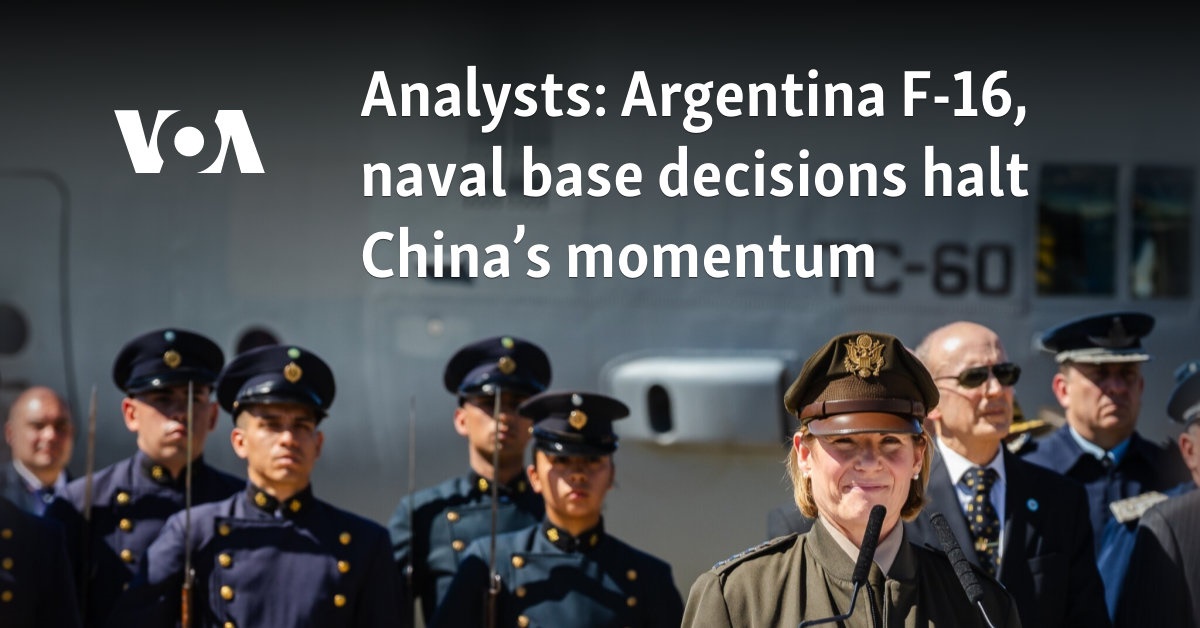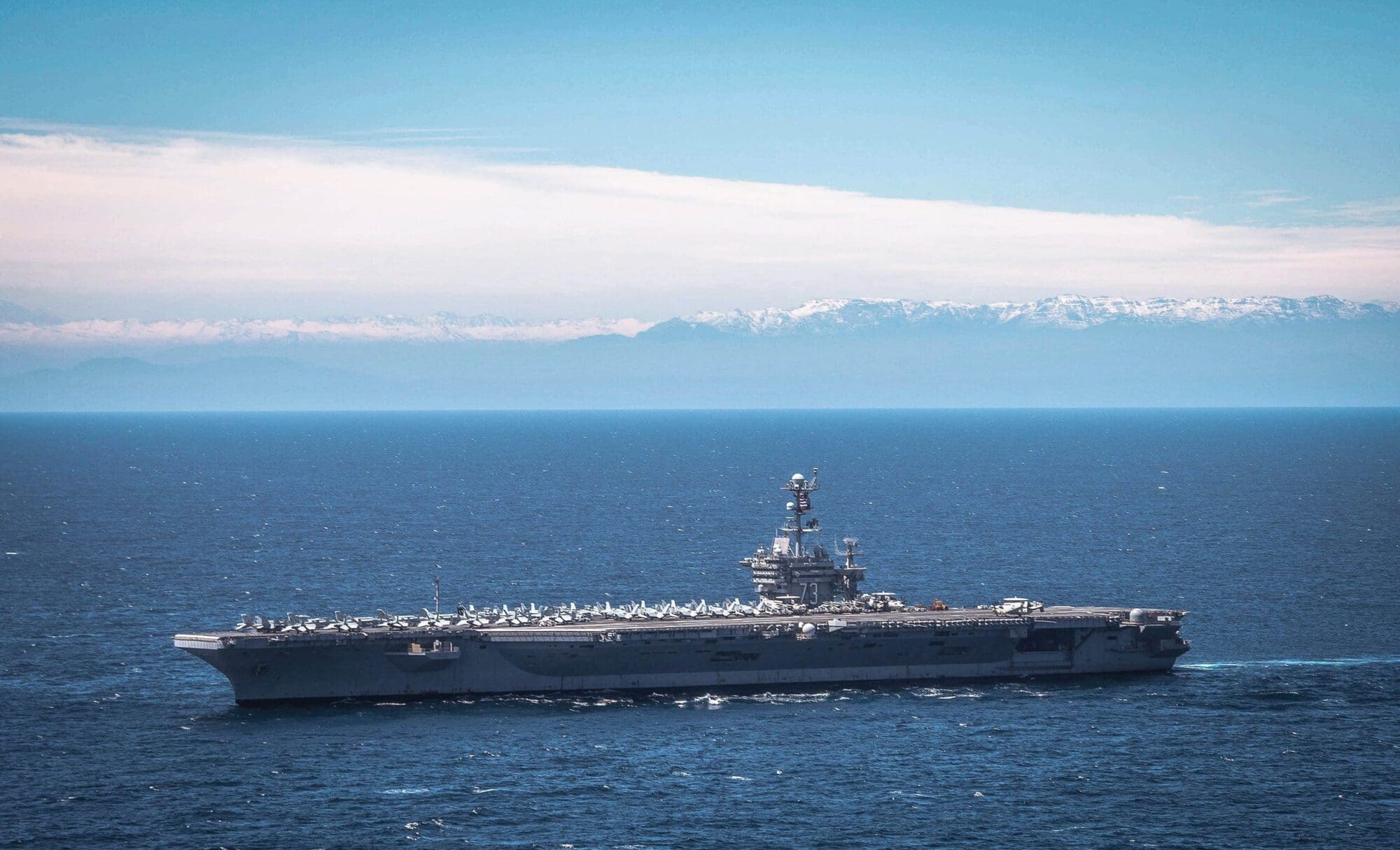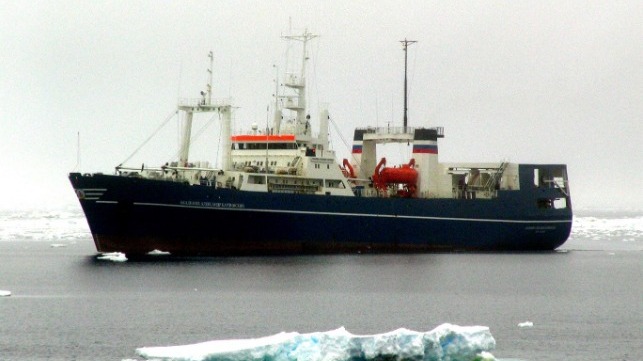HenryNisental
Registered
- Joined
- Oct 23, 2009
- Messages
- 1,113
- Likes
- 656
Hey, anybody hear anything about a possible new USAF base in Usuahia?

 www.voanews.com
www.voanews.com


 orinocotribune.com
orinocotribune.com


They’re competing with China. China already has a “mystery” listening dish in the Neuquen province that was set up years agoMy question would be why?
Who are they going to fight down there, the penguins? What threat to the security of the USA could possibly exist in the far southern Atlantic?
My question would be why?
Who are they going to fight down there, the penguins? What threat to the security of the USA could possibly exist in the far southern Atlantic?

My question would be why?
Who are they going to fight down there, the penguins? What threat to the security of the USA could possibly exist in the far southern Atlantic?
I'll preface this by saying that despite being a U.S. Army veteran, I'm not trying to be a shill for the U.S. military with this response. Just trying to provide insight.
In a nutshell, the U.S. military has a presence in foreign countries for a variety of reasons, including ongoing historical conflicts (e.g. South Korea); past historical conflicts (e.g. Japan and Germany); counterterrorism operations (e.g. Djibouti); missile warning capability (e.g. Greenland); communications capability (e.g. Exmouth Australia); deterrence against Russia (e.g. Camp Kościuszko in Poland); deterrence against China (e.g. Philippines, Thailand, and Singapore); drug interdiction and transnational crime fighting (e.g. Honduras); marine safety (e.g. Netherlands); aerospace defense (e.g. Canada); cooperative security locations (e.g. Aruba and Curaçao); and that probably just scratches the surface.
According to Wikipedia, "The total number of foreign sites with installations and facilities that are either in active use and service, or that may be activated and operated by American military personnel and allies, is just over 1,000." Estimates vary based on the source, but the U.S. military is believed to have a "base" (could be anything from a small city to a small radar site) in approximately 80 countries, and a presence of some sort in probably twice that.
(https://en.wikipedia.org/wiki/List_of_American_military_installations)
(https://ubique.americangeo.org/map-...ek-mapping-the-global-u-s-military-bootprint/)
(https://watson.brown.edu/costsofwar/papers/2023/USCounterterrorismOperations)
The website "Today's Military" has a customizable map of some of the larger bases around the world, but the map omits a lot of the smaller cooperative security and counterrorism locations in Africa, South America, etc. You can filter by region and branch:
(https://www.todaysmilitary.com/ways-to-serve/bases-around-world)
Some foreign allies have a physical military presence in the United States as well, albeit to a significantly smaller degree, and nothing that would be considered a "base." Examples include German Armed Forces Command in Reston, Virginia; Singapore (integrated training in Idaho); Sheppard AFB in Texas (sole source of fighter pilot training for partner nations Belgium, Denmark, Germany, The Netherlands and Norway); and Edwards AFB in California (UK/RAF testing and evaluation squadron). So sometimes it's not about threats or deterrence, but about friendly international cooperation and relations so that if major sh*t ever does hit the fan the US has as many friendly (or at least neutral) countries on its side as possible.
Back to Argentina, there are a variety of "official" reasons (along with probably a few hidden reasons) that the U.S. and Argentina have been increasing their partnerships of late, including:
The main U.S. concern in Latin America though is China, namely countering current Chinese influence in "authoritarian" countries such as Cuba, Venezuela and Nicaragua; and keeping China from establishing a larger foothold in the region. Prior to General Richardson's (U.S. SOUTHCOM) recent visit to Argentina, she presented a report to the U.S. Senate regarding China, which included the following statement:
- Combatting illegal Chinese fishing (https://dialogo-americas.com/articles/us-argentina-to-cooperate-combat-illegal-chinese-fishing/)
- Modernizing Argentina's fighter capabilities (https://ar.usembassy.gov/united-sta...-in-foreign-military-financing-for-argentina/)
- Counterterrorism, anti-crime, and search and rescue operations (https://www.state.gov/u-s-relations-with-argentina/)
- Argentina's efforts to potentially join NATO (as a "global partner") and attract new foreign investment (https://apnews.com/article/presiden...16s-military-bf56ef4b18646438500c921250c66e93)
- Deterrence against China, Russia and Iran (https://dialogo-americas.com/articles/argentina-us-united-for-regional-security/)
- Protecting global shipping routes and Antarctic influence (https://americasquarterly.org/artic...suddenly-care-about-a-port-in-southern-chile/)
“The People’s Republic of China (PRC) understands the importance of economics and the intertwined role of the People’s Liberation Army (PLA) in achieving its Chinese Dream — the PRC reclamation of China’s central role in world affairs. In Latin America and the Caribbean, USSOUTHCOM recognizes the opportunity to collaborate with our partners, build their capacity, and increase their resiliency to the pervasive challenges and threats they face. Conversely, the PRC is exploiting a fragile security environment and taking advantage of the region’s need for economic investment to gain influence and advance its malign agenda. The PRC knows that economic power is a prerequisite for global military power and it is imperative that we view the PRC’s economic activities, particularly in the Americas, as connected to their global political and military desires.”
Were the United States to ever just withdraw all presence from Latin America completely, or Europe completely, or Southeast Asia completely, or Antarctica and the Arctic completely, or the Middle East completely; the reach and influence of countries like China, Russia, Iran and North Korea would expand significantly, and China and Russia in particular haven't been shy about their desire to reclaim old stomping grounds. I think that many countries around the world aren't particularly fond of the vast reach of the U.S. military, but they know that the U.S. (for the most part) respects the sovereignty of its allies and doesn't have the desire to increase its territory or redraw its borders through invasion or force. Thus, the U.S. military's presence is welcomed (or at least tolerated) in many parts of the world, as the same can't be said about other global powers.
An example of this would be the recent military agreement between the U.S. and Palau (https://www.defense.gov/News/News-S...unding-for-pacifics-freely-associated-states/). The U.S. is able to safeguard a strategically important island by increasing its radar and missile defense capabilities, countering Chinese influence in the region, and improving its maritime efforts to protect global shipping lanes, stop illegal fishing, and intercept weapons smugglers. In return, Palau (which has no military and has a history of being colonized) receives U.S. defense guarantees and billions of dollars. Last year, Palau's president said U.S. help was necessary and welcomed to deter China’s “unwanted activities” around its coasts and stop China's "uninvited" and recurring violations of its territory. So for some smaller countries it's as simple as that - protection (and a lot of money) from an invited guest with established intentions, versus no protection and the risk of an uninvited guest forcefully deciding to stake claim to more territory.
We'll see what happens here in Argentina - Milei seems to be highly receptive and intent on building partnerships with the U.S. and increasing military cooperation (likely to curry as much favor and future economic interest from the West as possible). But I'm sure a fairly sizeable portion of Argentina's populace will see any U.S. military presence as another experiment in the U.S. "imperial laboratory" (https://jacobin.com/2023/03/greg-grandin-interview-us-policy-latin-america).
Well, that was an impressively comprehensive response. You obviously have a solid grasp of strategic analysis.
The problem with this topic is that if we go much further, it will descend into an acrimonious debate of US politics...
China is / was interested in building a Naval base in Ushuaia.
That’s a crucial place because it could control the shipping going from the Atlantic to the Pacific.
